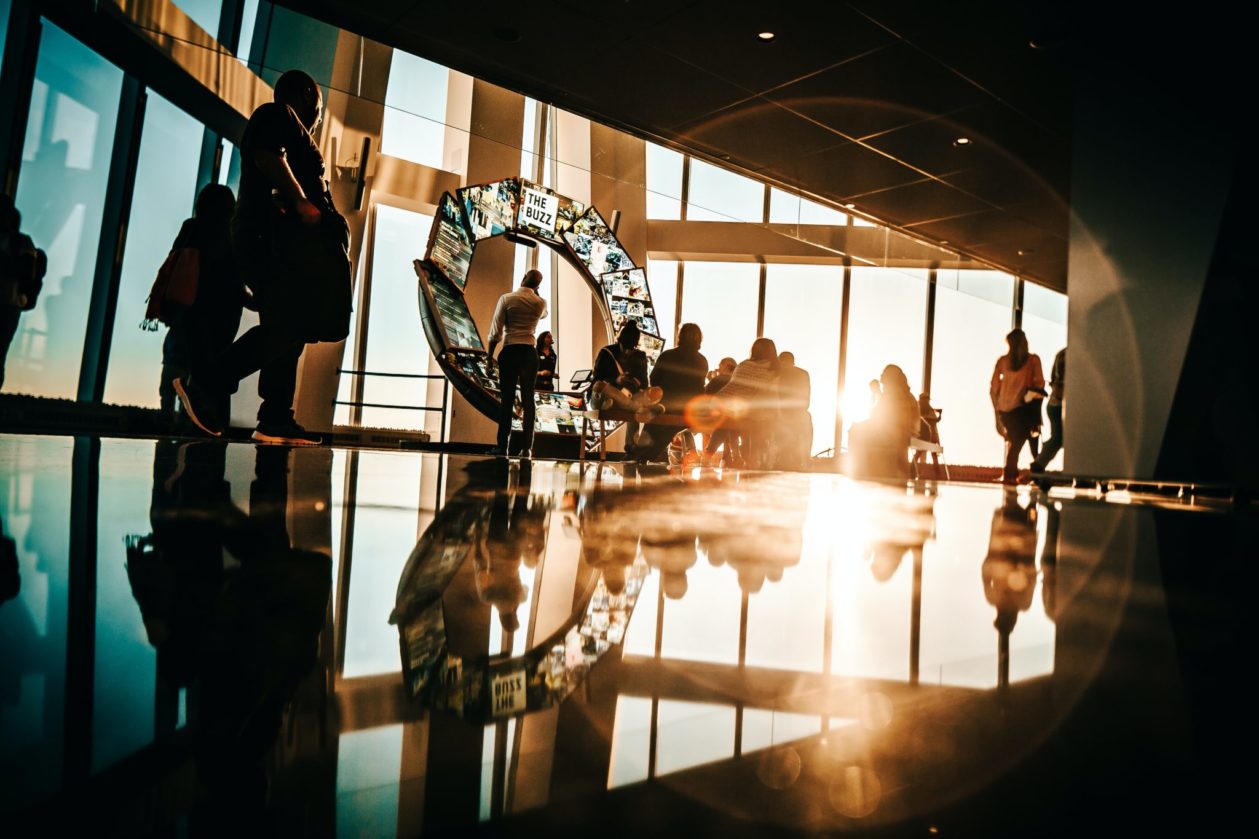For a lot of business leaders, particularly those involved in outward-facing roles, conferences have been a staple of working life for decades. Whether by the shores of a frozen lake in Colorado or in the ballroom of a soulless hotel in Topeka, Kan., we can all recognize the props and stage setting: the name tags, the printed list of delegates, the sponsorship banners, the awkward conversations at the bar among people trying to skip straight to level two or three of acquaintance.
It doesn’t matter if your usual milieu is the World Economic Forum at Davos or the Kansas Association of Mappers (Capitol Plaza, Topeka—genuinely), the effects of the pandemic have been a great leveler. We have all been grounded, confined and locked down, unable to travel anywhere or mix in large groups. Into the sudden void have stepped online platforms, like Zoom and Microsoft Teams, and what were going to be thronged in-person events have been transformed, with varying degrees of success, into virtual assemblies—with keynotes delivered from home offices and dens, and audiences scattered across the world.

These online events have fallen squarely into the box marked “mixed blessing.” On the one hand, many have been free, or charging a nominal fee of a few dollars to register, and have secured much larger audiences over the internet than they ever would have done in person. From my apartment in west London, I’ve “attended” conferences in New York, Singapore, California, Australia and Dubai, heard some amazing contributions (as well as the usual quotidian time-fillers) and been able to interact satisfactorily with the keynote speakers and other delegates.
However, the socialization, the casual, low-key networking that makes such a difference to business life, is almost entirely absent. No snatched conversations over a quick glass of wine in the hotel bar, no entirely serendipitous meetings of minds across different disciplines and sectors, no seeds of long-lasting friendship sown. Attention spans wander, too: If you are simply propped in front of a laptop for several hours a day, it can be exhausting, and it’s all too easy to find other things to do while you “keep an eye” on proceedings.
Taking the good and the bad into consideration, though, it’s my guess that a lot of these conferences will stay online, even once we find a COVID-19 vaccine and can travel and congregate again. Eagle-eyed finance departments will have noticed how much money has been saved, both in real terms and in working hours, and suddenly the business case for that three-day corporate training exercise in Arizona looks a lot less compelling when it can be delivered for a fraction of the cost online, and—this is really important—the content recorded, recycled and shared among teams. A cold wind is blowing through the land of the junket, and a lot of events will feel its chill.

I’m going to go out on a limb, though, and say that the future business world will still have a place for very high-end conferences. Davos, to take probably the most famous example, has rescheduled its 2021 event from January to mid-summer, to allow more time for science to try to stamp out coronavirus and is relocating to Lucerne-Bürgenstock, and as of this month, still plans to have “in-person” elements to the event. Expo 2020 has also been postponed from October 2021 to March 2022, but Dubai still anticipates holding it as a live event. Perhaps Anthony Scaramucci will be able to resurrect his SALT event in Las Vegas, after populating this summer with digital SALT Talks—one-to-one interviews with high-profile figures.
The truth about such elite gatherings is that the set-piece speeches and presentations are not really the primary motivation for attending. After all, if Greta Thunberg is going to talk about the climate crisis, it’s likely someone will have the wit to record the speech, wherever it happens, so the content will hardly be lost to posterity. It is, however, a very different thing to be in the hall when she delivers it, and—let’s be quite frank—to be able to say you were there. And how easily fleeting eye contact in a brush-past becomes a story of how you “met” Greta, or President Donald Trump, or Jacinda Ardern or Hillary Clinton. We shouldn’t scorn this currency: In business, appearances matter, and appearances of access matter more than most.
The equally important flip side is the off-camera conversations, the private events, the exclusive parties. Here deals are done and influence wielded, and if plots are to be hatched in smoke-filled rooms, then someone needs to provide the rooms. Opportunities for political, financial and business leaders to meet away from the glare of the spotlight are hugely important. Remember, if you’re the German finance minister, or the president of the World Bank or the CEO of ExxonMobil, you don’t often meet people with whom you share experiences and lifestyles. This forum of (relative) equals is a key part of international affairs in the broadest sense.
And these are opportunities for which the wealthy will pay top dollar. To attend Davos and participate fully, delegates are spending well into six figures already. For many, it’s a money-no-object event. I think conference organizers will be able to hike their prices and make them more, not less, elite and unattainable to ordinary people, and in doing so, they’ll differentiate them yet more clearly from run-of-the-mill, largely virtual events. The chairman of the Fed will still pay, so will the head of Rosneft, or the crown prince of Saudi Arabia. Money not only talks—it can shout, and it can whisper.
So face-to-face conferences might not be dead. COVID-19 might have taken a heavy toll on their infantry, but the top brass is alive and well. By acting counterintuitively, and fulfilling many of the stereotypes thrown at them, they might, conversely, find their salvation. The rich man might not pass through the eye of a needle, but they can get past the security checks at Davos.







